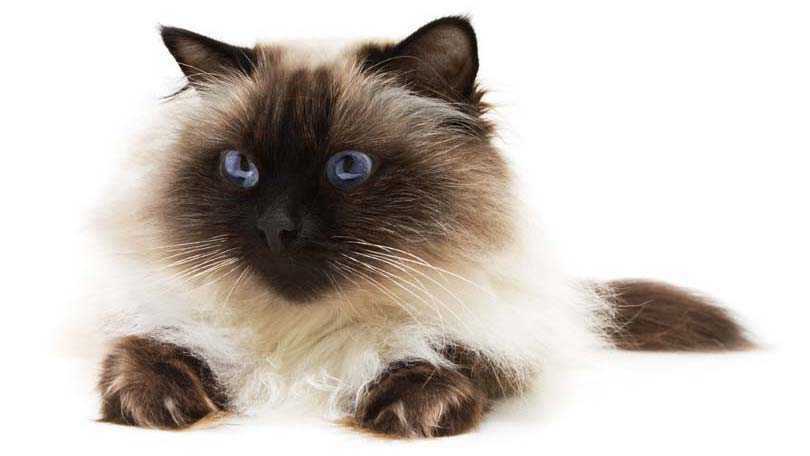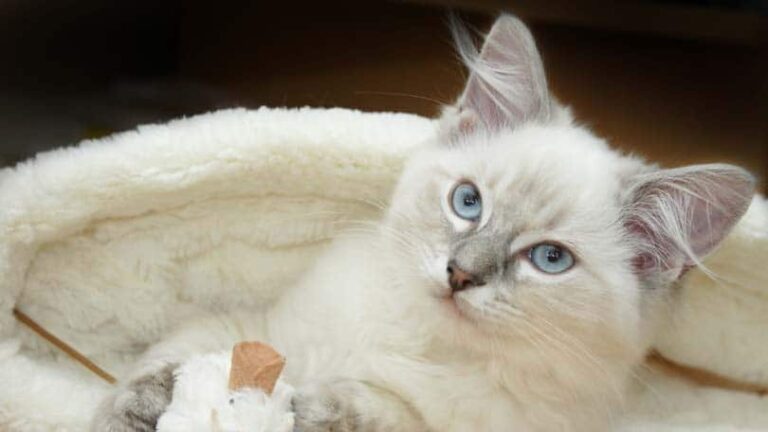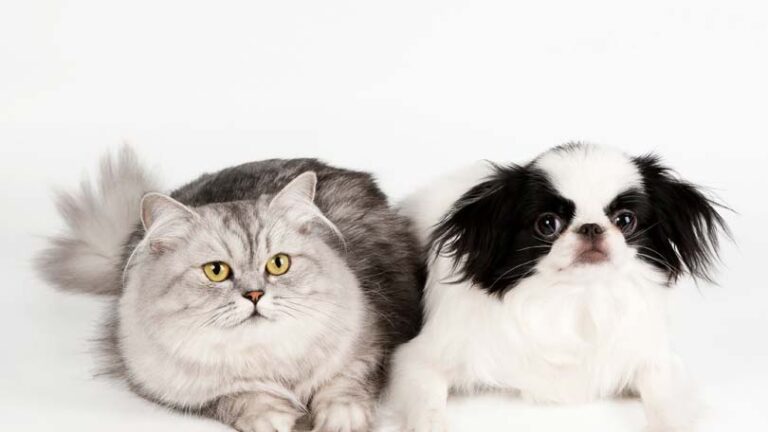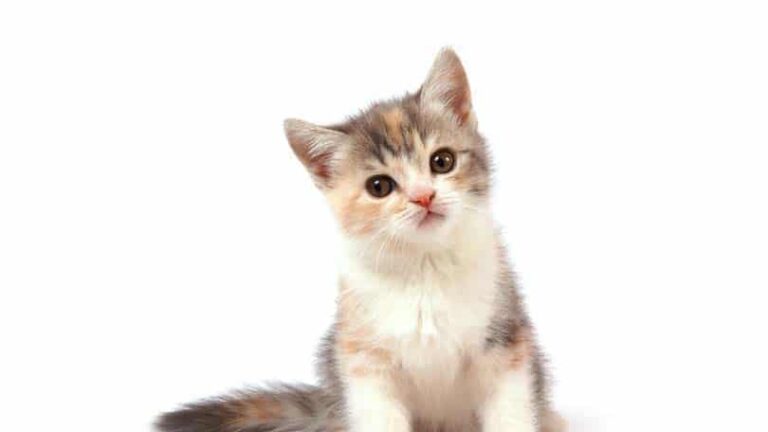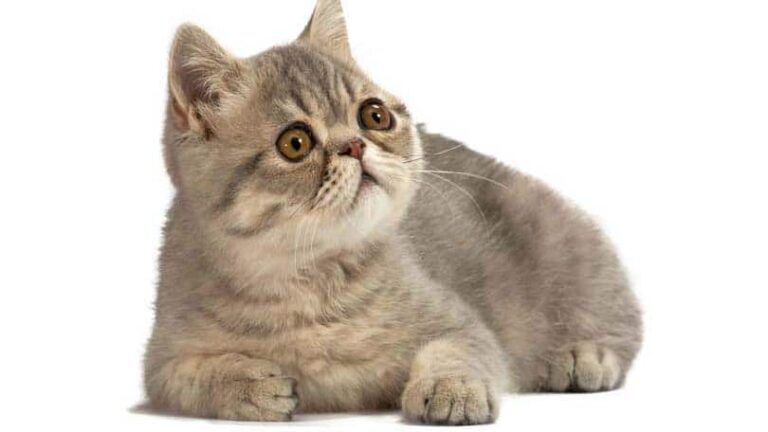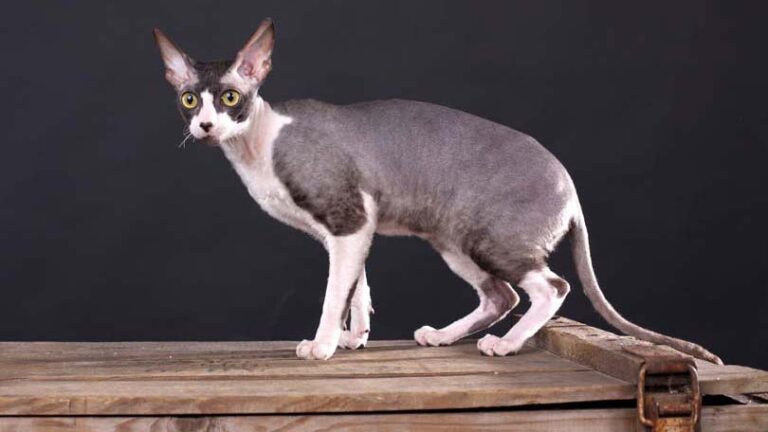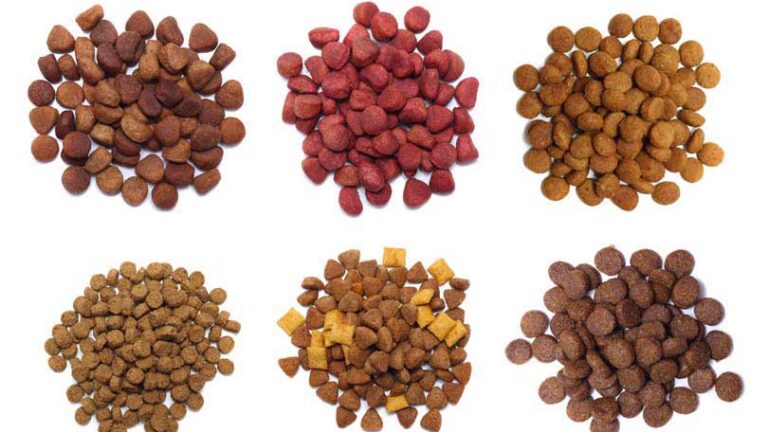Cats and Milk
Cats and milk go together just like 10 years olds and Kool-Aid. Whenever I make myself a bowl of cereal with milk in it, my cats surround me like a kitty mob, waiting for their turn to lap up some of my delicious milk. Sometimes I give them some because, like a mob of people, they are quite persuasive. But in truth, you really shouldn’t give cats cow’s milk, at least not in large amounts. More on that later.
Milk does a kitty’s body good. It has many essential nutrients that cats crave and need to stay healthy. It is what mother cats feed their young to help make them strong and build up immunity. But do you need to give your older cats milk on a regular basis, and is it safe for them later in life?
Kittens Start Off Drinking Mother’s Milk
First, let’s go into a little bit of background on why cats love milk. When kittens are first born, they depend on their mothers for food. As is the case with other mammals, the mother (also called the queen) produces and gives milk through her nipples to feed her young until the kittens are old enough to be weaned and put on solid food. Baby cats stay on their mother’s milk for about four weeks of their lives.
So the milk is synonymous with comfort and contentment, since it reminds the cat of the days when it used to bond with its mother and siblings.
No matter how old they get, most cats don’t ever forget the sweet nourishing taste of milk. It’s a special treat for cats, right up there with albacore tuna fish. You will be hard pressed to find a cat that turns his nose up to an offer of fresh cold milk in a bowl.
What Nutrients are in Cat’s Milk?
Cat’s milk is high in protein, and has an optimal mixture of iron, copper, zinc, magnesium, and calcium–all key elements to a kitten’s growth. It is also high in fat (about 10 to 15% fat content) and carbohydrates. According to a study done by the University of California’s Department of Nutrition, the nutrient mix in the cat mother’s milk changes according to the kittens’ needs—a testament to the wonders of a cat’s unique mothering abilities (Source: “Developmental Changes in Composition of Cats’ Milk,” Carl L. Keen et al, University of California). This milk is thick, almost buttery in consistency, and yellowish in color.
Another important feature of milk from a mother cat is that it contains important antibodies that help build up the immune systems of the newborn kittens.
Some people believe that because you have to provide vitamins and essential nutrients to cats and milk is one of their favorite foods it should just automatically become a part of a cat’s regular diet. But the truth is, it is not necessary to give your cat a bowl of milk each day.
As long as you are feeding your cat the right solid foods she will get the nutrition that she needs. The proper foods include high quality dry foods that are low in gluten and high in protein, magnesium, fiber, and antioxidants. Some cat experts suggest that you just feed cats meat. There are also special cat vitamins that you can give your cat from time to time to boost his energy and build up the immune system.
In fact, millk could actually be overkill—consult with your veterinarian to ask about the optimal mix of nutrients that your cat needs. The answer will depend on the cat’s weight, age, behaviors, and any health conditions that need to be managed.
Cow’s milk – Is It Safe for a Cat?
Most cat experts will advise strongly against feeding your cats cow’s milk or cream. This is because many cats are lactose intolerant and their systems don’t respond well to the chemicals in the milk that we drink. Cow’s milk does not have as many nutrients as mother’s milk and it could make your pet sick, create digestive issues, and/or give your feline companion bad diarrhea. How will you know that your cat has digestive problems or diarrhea? Believe me, you will definitely know!
Keep in mind that you should never give a baby kitten cow’s milk in place of the mother’s milk. There are simply not enough nutrients in the milk that we drink to facilitate proper growth in a kitten.
In some cases adult cats are tolerant of regular milk in small doses. It’s definitely not a good idea to pour a whole bowl full of regular milk and give it to your cat as “dinner” each night. But regardless of its merits as a nutritious drink, to most cats cow’s milk is just as tasty and desireable as mothers milk.
Can You Buy Cat’s milk?
Many people choose to continue to give their cat’s milk after kittenhood as more of a treat as opposed to a meal. There are real milk products that you can buy specifically for your cats instead of the milk that you drink. These products obviously aren’t made from the actual cat milk that comes from a queen’s nipples, but they are close simulations of the formula.
When you buy artificial cat’s milk, check to make sure that it has lactase, an enzyme that breaks down milk sugar into a digestible form and is lactose free. This will reduce the risk of diarrhea and other digestive problems in your cat. Also, check the fat content—there is no need for a grown cat to take in the amount of milkfat that a kitten gets from its mother.
Cats and milk go together, and it’s not fair to deprive your beloved kitty of this delicious treat from time to time, just as you wouldn’t want to go without an occassional slice of cheesecake or an oreo cookie after dinner. Just make sure that when you do give your cat some milk it is completely compatible with his or her digestive system.

Having discovered a fondness for insects while pursuing her degree in Biology, Randi Jones was quite bugged to know that people usually dismissed these little creatures as “creepy-crawlies”.

